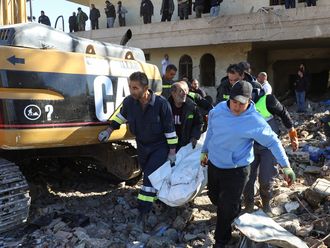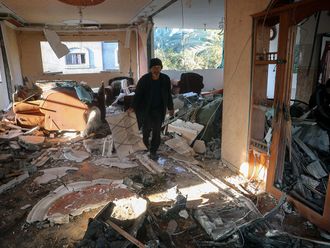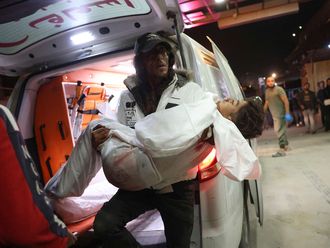Beirut
The powerful Lebanese Hezbollah militia has thrived for decades on generous cash handouts from Iran, spending lavishly on benefits for its fighters, funding social services for its constituents and accumulating a formidable arsenal that has helped make the group a significant regional force, with troops in Syria and Iraq.
But since President Donald Trump introduced sweeping new restrictions on trade with Iran last year, raising tensions with Tehran that reached a crescendo in recent days, Iran’s ability to finance allies like Hezbollah has been curtailed. Hezbollah, the best funded and most senior of Tehran’s proxies, has seen a sharp fall in its revenue and is being forced to make draconian cuts to its spending, according to Hezbollah officials, members and supporters.
Fighters are being furloughed or assigned to the reserves, where they receive lower salaries or no pay at all.
Many of them are being withdrawn from Syria, where the militia has played an instrumental role in fighting on behalf of President Bashar Al Assad and ensuring his survival.
Programmes on Hezbollah’s television station Al Manar have been cancelled and their staff laid off, according to another Hezbollah insider.
The once ample spending programmes that underpinned the group’s support among Lebanon’s historically impoverished Shiite community have been slashed, including the supply of free medicines and even groceries to fighters, employees and their families.
The sanctions imposed late last year by Trump after he withdrew from the landmark nuclear deal aimed at curbing Iran’s nuclear ambitions are far more draconian than those that helped bring Iran to the negotiating table under the Obama administration, and they are having a profound effect on the Iranian economy, analysts say.
Trump administration officials claim they have wiped $10 billion (Dh36.78 billion) from Iranian revenue since November.
The tensions between Washington and Tehran spiked after further restrictions went into effect on May 2, eliminating waivers from eight countries that had previously been allowed to continue importing Iranian oil with the goal, US officials say, of reducing Iranian oil exports to “zero.”
The austerity measures adopted by Hezbollah offer one indication of the breadth of their impact, not only on Iran’s own economy but on its capacity to support its regional proxies.
A senior Hezbollah official, who spoke on the condition of anonymity in accordance with the group’s rules governing interactions with the media, acknowledged that income from Iran has fallen, obliging Hezbollah to cut its expenditures.
“There is no doubt these sanctions have had a negative impact,” said the official.
The US Special Envoy Brian Hook told reporters in Washington in April that Iran in the past has sent Hezbollah up to $700 million a year, accounting for 70 per cent of the group’s revenue.
Those Hezbollah officials and full-time fighters who are still on the payroll are receiving their salaries, but benefits for expenses such as meals, gas and transportation have been cancelled, according to another Hezbollah insider.
Hezbollah has also embarked on a major campaign to compensate for the shortfall in Iranian funding by soliciting donations.
— New York Times News Service











